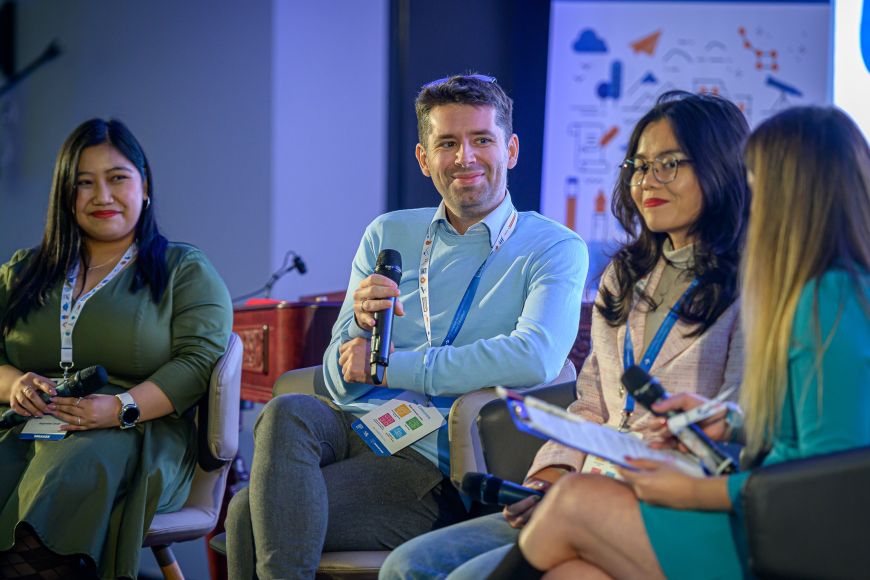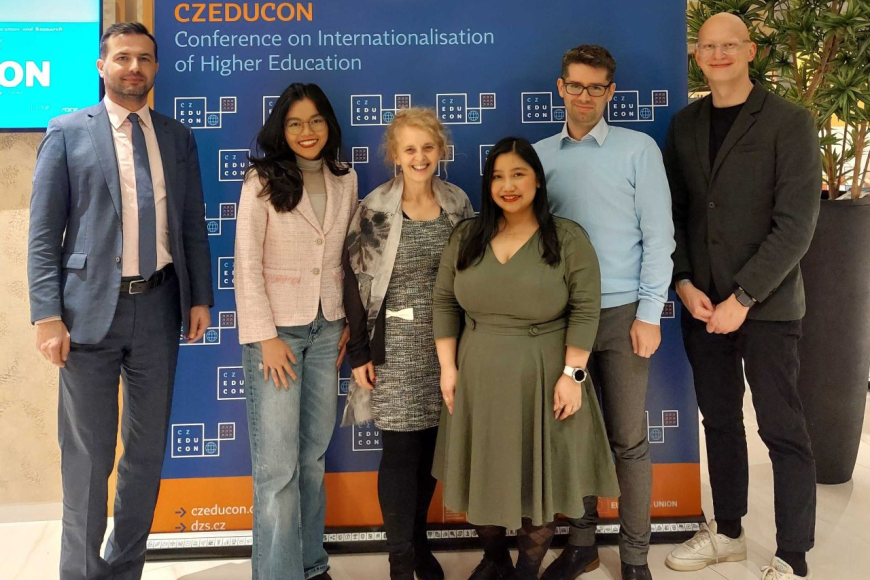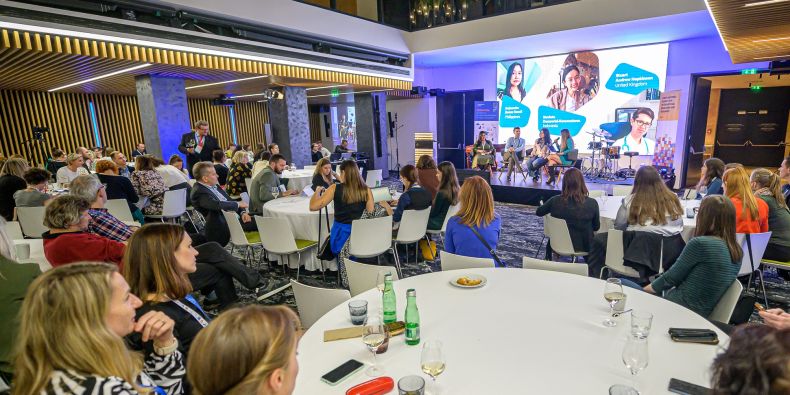The Conference on International Education, which was organised by the Czech National Agency for International Education and Research (Ministry of Education, Youth and Sports) for the fifth time this November, is one of the largest events of its kind in Central Europe and attracts hundreds of participants from Czech universities and abroad every year. The main part of Czeducon was opened by the Minister of Education and former Rector of Masaryk University Mikuláš Bek, together with the President of the European Association for International Education (EAIE) Piet Van Hove and the President of the Czech Rectors' Conference and Rector of Charles University Milena Králíčková.
Over forty lectures and workshops awaited the conference participants this year, focusing on four main themes: internationalisation for all, the digital age, cooperation in and outside academia and the Applicants - Student - Graduate cycle.
The programme also included an evening networking programme, during which the so-called Alumni Talks took place, where three Masaryk University alumni presented their studies and life in Brno to the audience. Moderator Zuzana Polívková from the Czech National Agency welcomed on stage a graduate of cultural sociology Novinta Desweriel from Indonesia, medical graduate Stuart Andrew Hopkinson from the UK and international relations and European studies graduate Anjanette Jianna Umali, who was born in the Philippines and grew up in the United Arab Emirates.
The biggest barrier? Czech language
Although all three graduates of MU ended up in the Czech Republic rather by chance, they all ended up staying in Brno even after completing their studies. Novinta currently works as a marketing coordinator at Zebra Technologies, Stuart as an emergency room doctor at a hospital in Blansko, about twenty kilometres from Brno, and Anjanette as a community manager at the game development studio Bohemia Interactive.
“What I really liked about Brno is that it is much smaller and quieter than Dubai and that it is in the middle of Europe. I was also very interested in the study programme itself, so I'm glad I ended up here. I just fell in love with Brno,” explained Anjanette, who has lived in Brno for six years.
When asked by the moderator what surprised them the most about the Czech Republic and Brno, everyone answered differently. According to Anjanette, it was mainly the nice and friendly teachers. For Novinta, it was surprising that for her, as a foreigner, it was not as difficult to find a job as she expected – there were many job offers. And Stuart amused the audience when he replied that he was most surprised by how many parts an anatomy textbook had.
All three agreed that the biggest barrier to their life in the Czech Republic is Czech, which they consider a challenging language. However, Novinta and Anjanette do not feel this barrier as much as Stuart, who communicates with patients in the hospital daily in Czech. “Going to a hospital where only Czech is spoken was a big decision. Even though I had weekly Czech classes during my six years at MU, I was very scared. At the beginning, it was challenging – I didn't understand the patients, and I had trouble writing medical reports in Czech. But my chief of medicine and the whole team were amazing, helping me with the language and supporting me,” Stuart explained.

MU graduates also spoke about the volunteer activities they were involved in during their studies. For example, Stuart was one of the founding members of the MIMSA student association at the medical faculty, which still exists today. Anjanette and Novinta also participated in volunteer activities, both of whom were part of the Faculty of Social Studies' ambassador programme. Anjanette was also involved in organising charity collections during the pandemic. Novinta, in turn, co-organised clothing swaps to help with sustainability.
All three of them remain in contact with Masaryk University after their studies, and according to Anjanette and Novinta, this is an ideal way to ensure a good supply of graduates for positions in the companies where they work. “My team is full of Masaryk University graduates,” Novinta said. Even Stuart stays in touch with the faculty and attends welcome meetings for incoming medical students. He also keeps in touch with his classmates from his studies who are now working in different parts of the world. This is also how they shared their experiences of a then-unknown disease with each other during the pandemic.
After the discussion, the graduates also met with Petr Suchý, Vice-Rector for Internationalisation of Masaryk University, Violeta Osouchová, Director of the Centre for International Cooperation of Masaryk University, and Jakub Motyčka, Head of the International Marketing Department, who attended the conference on behalf of Masaryk University.
In addition to the three international graduates, other people from Masaryk University also made contributions at Czeducon. For example, Petr Suchý, Vice-Rector for Internationalisation, spoke about the obstacles to student mobility and ways to overcome them. Zdeněk Janík and Hana Delalande from the Faculty of Education presented their experience with COIL courses, and Tomáš Varga and Lenka Tóthová from the Teiresiás Centre talked about services for students with specific requirements. The conference was closed with a final presentation by scientist Barbora Chattová from the Faculty of Science, who gave an overview of what it is like to do science in Antarctica.

